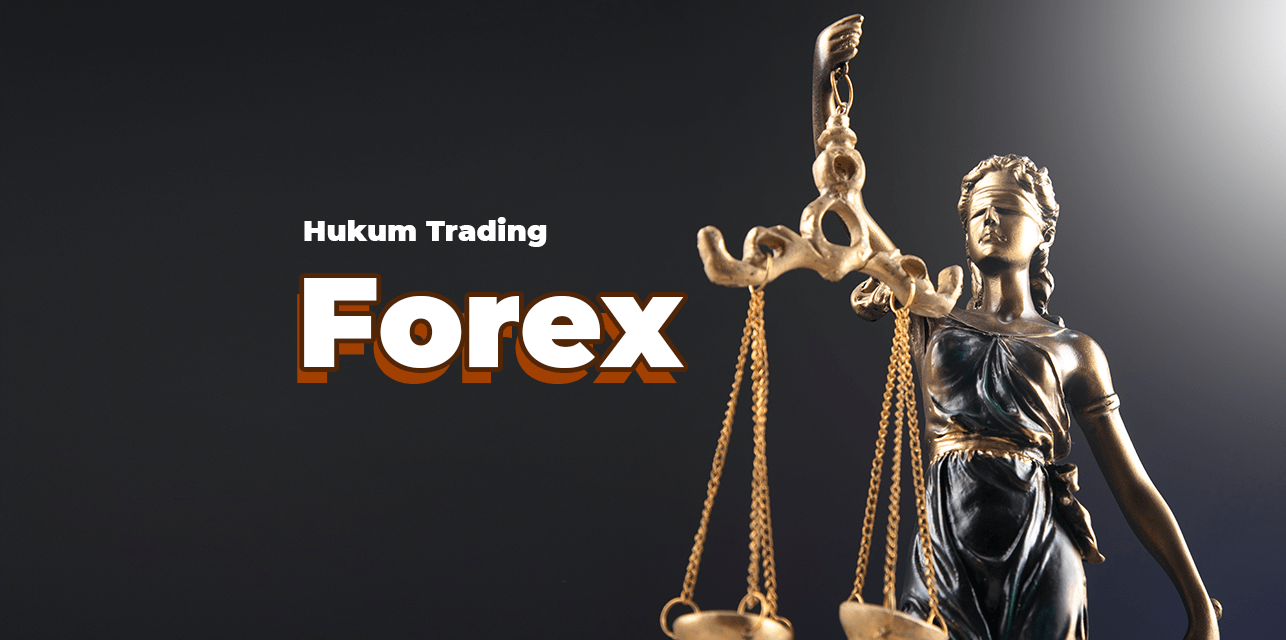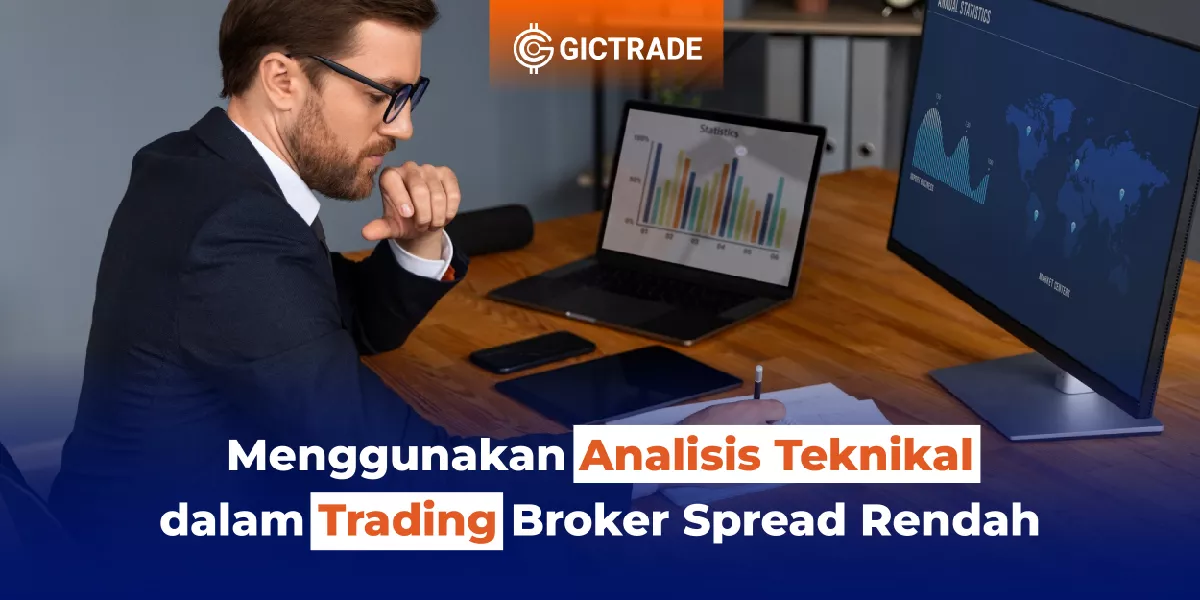Forex Trading Laws in Islam
The question of whether Forex trading is permissible under Islamic law is a difficult one to answer conclusively. While Islamic authorities certainly agree that currency exchange under certain conditions is halal (i.e. permissible under Islamic law), there is some dispute as to under what conditions. Riba or usury in Islamic terms refers to any business contract or agreement that involves the charging of interest.The Quran is clear on this issue and condemns financial transactions that revolve around usury. According to the Quran: "God removes interest from all blessings but blesses deeds; He does not love ungrateful sinners." Surah al-Baqarah verse 276 Financial transactions with elements of usury are strongly condemned.
Muslims should also note that not all Muslim theologians agree on what counts as usury and what does not. Nevertheless, the prohibition of interest has led to the development of the Islamic banking industry. Forex brokers, in general, do business by paying or charging the difference in interest between the two components of any currency pair when a position is held overnight. This interest charge is known as swap commission and is a form of interest.
However, considering the above points, it is clear that Islam does not permit such interest rates. However, to make Forex trading beneficial for Muslims, Forex brokers introduced Islamic Forex trading. In an Islamic setting, brokers allow investors to hold their positions overnight without paying interest or swap commissions. These swap-free Forex accounts remove the hurdle of usury and allow Muslim investors to take part in Forex trading.
Furthermore, regular spot Forex trading accounts are for immediate buying and selling and do not have any overnight interest charges. They also eliminate the element of usury from Forex trading. There is no doubt that currency exchange is permissible in Islam, provided that there is no interest element, it is done hand to hand (although this phrase can be translated in various ways), and that the exchanger has a legitimate reason to anticipate the possibility of profit based on analysis that does not rely on gambling psychology.
At a minimum, an Islamic Forex broker can be used to trade, which should at least eliminate all riba challenges. As we have seen, there are certain gray areas in this qualification that must be thoroughly investigated in good faith and conscience by anyone who wants to start halal Forex trading with a Muslim Forex account.
Forex Trading Laws According to Experts
Below are several views of forex law according to experts. These views are:According to MUI
Legal basis according to DSN fatwa number 28/DSN-MUI/III/2002 on currency trading (al-Ṣarf) In the DSN MUI Fatwa it is stated that Foreign Exchange (Al-Ṣarf) is a form of currency trading transaction between currencies and between currencies of various types. While in 'urf tijari (trading tradition) currency trading transactions, there are several forms of transactions whose legal status in the view of Islamic teachings differs between one form and another. According to the DSN MUI Fatwa, currency trading transactions are in principle permitted with the following provisions:- Not for speculation (coincidence)
- There is a need for a transaction or just in case (deposit)
- If the transaction is made in the same currency, the value must be the same and in cash (at-taqabudh).
- If there are different types, it must be done at the exchange rate (rate) applicable at the time the transaction is made and in cash.
According to NU
Regarding the law of electronic transactions, the 32nd NU Congress in Makassar in 2010 stated that it is permissible if the traded goods (mabi’) have clear elements according to their characteristics and nature according to urfy. If this is brought to the case of currency exchange trading, then the exchange rate known by each seller and buyer in the foreign exchange market is part of the ‘urfy. Forex (foreign exchange) is basically a transaction of exchanging foreign currency (foreign currency). The law of bartering foreign currency in the cash market is basically permissible.According to Salafi
Among the evidences that show that if the law of buying and selling currency is punished with gold and silver or dinars and dirhams, then it is done in cash and without any debt or lending money in Islam. The hadith narrated by Muslims as referring to the law of forex in Islam "Gold is sold for gold. Silver is sold for silver. Wheat is sold for wheat. Sya'ir (a type of wheat) is sold for sya'ir. Palm is sold as palm. And salt is sold with salt, (measure/scale) must be the same and cash. Whoever adds or asks for additional then he has committed usury. The giver and the recipient in this case are the same. "Al Bukhari and Muslim
“ Don't sell gold for gold, but it's the same. And don't overestimate any of them. Don't sell silver in exchange for silver, but it's the same. And do not exaggerate one over the other. And do not sell something that was handed over in cash and exchange it for something that was not handed over in cash. “Imam Malik and Al Baihaqi
And if he asks you to wait a while until he enters his house first before he hands over his goods, then do not wait for him. In fact, I fear that you are exceeding the limits of what is lawful, and what is meant by exceeding the limits of what is lawful is usury. Do not sell gold in exchange for gold but it is the same, and do not exaggerate one of them. Do not sell silver in exchange for silver, but it is the same, and do not exaggerate one over the other. And do not sell one of them which is given in cash in exchange for the other which is not given in cash. Do not sell silver in exchange for gold, one of which is not given in cash, while the other is given in cash.According to Muhammadiyah
The purpose of someone to buy and sell money at a Money Changer is because of the need to exchange currency to transact in different countries, so there is a physical exchange of money. While Forex Trading is done online with the sole aim of making a profit. It should be understood that Forex Trading is a business activity, investment, and can even be a profession. In relation to the profession which is an activity in the field of muamalah, the rule applies: الأصلُ في الأشياءِ الإباحةُ حَتَّى يقُومَ الدَّلِيْلُ عَلَى خِلاَفهِ. Everything is permissible, until there is a reason that prohibits it.Despite its many advantages, Forex Trading can be likened to a double-edged sword. Forex Trading can make someone rich, but it can also erode their capital in an instant. No matter whether Forex Trading is considered as a type of investment or as a regular trade, what is clear is that the risk of Forex Trading is very high. The greatest risk comes from the unclear price movements of the exchange rate (rate). If you can analyze market conditions and make the right transaction arrangements, you can make a profit.
But if on the contrary, the analysis and settings used are wrong, then the loss will be obtained. The point is, there is a very thick speculation and cannot be separated in this Forex Trading transaction. Unlike when someone uses a direct money exchange transaction at a Money Changer which has clearly appeared before our eyes the exchange rate and the money that we use as a means of exchange or transaction.
Allah SWT says in the Qur'an, يَٰٓأَيُّهَا ٱلَّذِينَ ءَامَنُواْ لَا تَأۡكُلُوٓاْ أَمۡوَٰلَكُم بَي}} تِجَٰرَةً عَن O you who believe, do not consume one another's wealth unjustly, except by way of business between you by mutual consent. And do not kill yourselves; surely Allah is Most Merciful to you [Q.S. an-Nisa' (4): 29]. In the explanation of the evidence and rules above, a person is permitted to carry out muamalah transactions, as long as it is done in a good way and does not harm other people.
According to the fiqh rules above, we are allowed to do anything in this world, if there is no evidence that forbids it. However, a person's free will does not mean it is without limits. People must submit and obey the applicable legal rules, especially the laws of God. In connection with Forex Trading above, you must first look at the terms and conditions of the contract, which generally according to Musthafa Ahmad az-Zarqa' includes 4 things,
- Legal subjects, on condition that they have the legal capacity to act and are clear in person.
- Objects, with the conditions that they are permissible, useful, can be transferred, and their condition is known.
- Purpose, with the condition that its purpose is clear.
- Ijab and qabul, provided that it reflects the willingness of both parties, there is a correspondence between the consent and qabul
- Spot transactions, namely transactions for buying and selling foreign exchange (forex) for delivery at that time (over the counter) or settlement within a maximum of two days.
- Forward transactions, namely foreign exchange purchase and sale transactions whose value is determined at the present time and is valid for a future period, between 2 x 24 hours and up to one year.
- Swap Transaction, which is a contract to buy or sell foreign currency at a spot price combined with a purchase or sale of the same foreign currency at a forward price.
- Option Transaction, namely a contract to obtain the right to buy or the right to sell which does not have to be carried out on a number of foreign currency units at a certain price and time period or end date.
- No speculation (speculation)
- There can be no maisir
- There must be no jahalah (vagueness)
- There can be no injustice
- Must not contain elements of usury
- There must be no harm (harm/danger)
- There must be no cheating or fraud
- Must not result in ta'assuf (abuse of rights)
- There must be no monopoly or conglomeration
- Business objects are not something haram
- You must not neglect or waste your assets.
According to Rumaysho
Quoted from Rumaysho, Shaykhul Islam Ibnu Taymiyah Rahimahullah explained, "The origin of the dinar and dirham (currency) is not to use its substance. Its purpose is as a measuring tool (to find out the value of an item). Dirhams and dinars are not intended to be used for their substance, they are only a medium for carrying out transactions.Therefore, the function of the currency is only as a means of exchange, unlike other commodities whose substance is utilized.” (Majmu’ Al Fatawa, 19/251-252) Imam Al Ghozali rahimahullah explained, People who carry out usury transactions with (currency) dinars and dirhams, have indeed ungrateful to the pleasure and have committed injustice. Because (currency) dinars and dirhams were created only as a medium and not as a goal. So if the currency is traded, then it will eventually become a commodity and a goal. This is contrary to the original purpose for which money was created.
Therefore, it is not permissible to sell (currency) dirhams and with dirhams of different denominations and it is not permissible to sell them in futures. The purpose of this is to prevent people who want to make the currency a commodity. This condition clearly urges traders not to reap profits. (Ihya’ ‘Ulumuddin, 4/88)
Is Forex Trading Halal or Haram?
Forex trading can be considered halal. According to Islamic law, something is "haram" or forbidden when the teachings of the Quran deem it so. Among the activities prohibited by the Quran are gambling and usury, also known as interest or riba. Since the latter two activities are associated with Forex trading, many scholars argue that Forex trading is haram according to Islamic principles.However, many have pointed out that not all Forex trading accounts involve interest and gambling, such as Muslim Forex accounts. Furthermore, the consensus among Muslim scholars is that it is okay to exchange currencies on a spot basis. This is because spot settlement can significantly reduce the riba aspect of Forex trading. On this basis, Muslim theologians have reached a consensus that Forex trading can be considered halal.
Is Forex Trading the Same as Gambling?
Forex trading is considered by many to be nothing more than gambling. After all, every time you take a position in a particular currency pair, you are essentially betting on the price to go up or down by taking a long or short position. So is forex trading really just another form of gambling? To the uneducated or inexperienced forex trader, it may seem very easy to come to this conclusion, especially if you start looking at the charts of any currency pair and see how they move randomly.
However, many large financial institutions around the world, and indeed individual traders, make consistent profits from trading the forex market, so you can be sure that they are not just randomly risking large sums of money every day. Of course, there are many different ways to give yourself an edge in forex trading. The main way is of course through technical analysis.
This is essentially the study of charts and technical indicators to identify trading patterns and help you find high probability trading positions. They work so well because traders all over the world are looking at the same charts and technical indicators and seeing the same patterns repeat themselves over and over again. This allows them to take a position knowing that price is likely to behave the same way in this case as it has in the past.
For example if GBP/USD has found support at say 1.9600 three times before, and does so again on this occasion, then many traders will also take notice of this and will be encouraged to take a long position, and in many ways it becomes a self-fulfilling prophecy. Furthermore with today’s technological advances many people can quickly and easily track any technical indicators they want thanks to the internet so technical analysis is becoming a more valid way to trade forex.
So while it is true that in the very short term there is an element of randomness in the market, if you look at the long term charts and use technical analysis to analyze the market and make trading decisions you can put the odds firmly in your favor. So to answer the original question I would say that forex trading is definitely not another form of gambling as with a little education you can become an accomplished technical analyst and place high probability trades where you win far more than you lose.
Why is Forex trading more than just gambling?
First things first, let’s talk about math. Since the casino has a statistical advantage over the players, that statistical advantage always ensures that the house always wins. Taking roulette as a classic example, which you may have seen somewhere online, there are 36 numbers on the roulette table with the colors red and black. Every time you place a bet on red or black, you might think that you have a 50/50 chance of winning or losing.However, the casino slides into the roulette wheel with a sneaky green zero, also a green double zero depending on where you currently live, and that doesn’t make it a 50/50 chance of winning anymore but roughly 47/53 and that is a statistical advantage over time. So in the long run, say in 100 bets, you will only win 47 bets and the casino will win 53 bets.
The good thing about trading is that you can trade like a casino. Over 47 losing trades, you can have 53 winning trades, assuming that each trade is of the same lot size, however, it all depends on your system, psychology, risk management, and ultimately, profitability. Secondly, you are allowed to use all sorts of additional tools and devices that will help your trading become consistently profitable.
The tools that you can utilize in trading can be a set of Expert Advisors that can trade on your behalf so you don’t have to deal with the emotional hassle of trading, or you can copy trades from someone else, someone who is a professional trader. To improve your trading, you can also use indicators for your technical analysis to gain an understanding of the characteristics of the instrument to gain a trading edge. With the recent advancements in technology, there are many advantages to trading.
At FTMO, you have access to various applications that will enhance your trading such as the Mentor App that measures your Equity flow, the Statistics App that shows you a summary of your trades in graphs and statistics, the Trading Journal that can track your trades if you want to add descriptions to your trades, the MetriX Account to track the overall performance of your account, and so on.
Despite the advancement and improvement of technology, you can also use a human mentor for your trading. Would a casino allow you to bring a mathematician onto the casino floor to count cards in Blackjack? In forex trading, there are almost no restrictions on how you trade, what tools you use, and how you conduct yourself. Moreover, in your trading journey, you can meet many professionals, financial experts, etc. and this type of social group will only educate you, which I am sure will only take you forward in your career and life.
In conclusion, Forex Trading can be gambling if you treat it like gambling. If you have no plan, no strategy, or no systematic approach to the market, and you are just relying on luck, then the outcome will always be a loss because you are trading against the big boys. Not only do those people have that market view, but they also know the behavior of the crowd and the big guys I am talking about here are the big banks. So to beat the big guys, you have to think like the big guys.
You have to be willing to take small losses, in order to be able to take big wins and thus ensure profitability in the long run. It is a long and lonely road to consistent long term profitability in Forex Trading, which demands a lot of consistency, discipline and dedication. And just like any other job or profession, to be the best in Forex Trading, you have to be willing to put in the sweat, blood and tears in terms of learning to control your psychology, managing your risk, planning, testing, re-strategizing and so on.
Is Forex Trading Legal?
Not only is the forex market one of the largest and most liquid financial sectors in the world, it is also among the fastest growing. For example, the forex market saw around $6.6 trillion traded globally every day at the end of last year, up from just $5.1 trillion in 2016 (and $1.2 trillion in 1995).In terms of its function, the forex market facilitates the buying, selling and exchanging of international currencies, which are traded in pairs and as derivative assets that allow investors to speculate on price movements and profits without taking ownership of the underlying instruments. As a result, forex is defined as a legal business that has many similarities to futures, stocks or commodities trading. However, forex trading and its brokerage are not regulated globally or by a single authority, with local entities (such as the FCA in the UK) responsible for overseeing practices in specific jurisdictions.
This creates significant variance and regulatory loopholes, which in some cases create opportunities for questionable marketing techniques, scams, and rogue operators promising secret trading formulas that falsely guarantee success for novice traders. These are examples that have partly informed people’s opinions about forex trading, causing some jurisdictions to impose stricter regulations and, in some cases, outright bans.
Considering Forex Disadvantages and Countries Where Forex Trading Is Illegal
Another issue that continues to plague forex trading is its reputation for encouraging significant losses, with some widely held estimates suggesting that around 96% of currency investors end up losing money over a given period. However, even the 90% estimate is considered a slight increase in the age of online and digital trading, with most experts claiming that as many as 70% of forex traders lose more than they gain.
The latter figure is more indicative of a dangerous and high-risk market, albeit a fair one, that can be successfully navigated by traders with knowledge, expertise and a keen sense of determinism. Countries that understand this have sought to legalize forex trading and regulate it heavily, to protect traders and ensure that brokers provide a transparent and reputable service.
However, in countries where authorities believe that as many as 96% of traders lose money, there is a tendency to make the practice illegal or impose very severe restrictions, creating a much less transparent market. In France, for example, authorities are moving to clamp down on the delivery and promotion of forex and binary options, with brokerage sites offering leverage higher than 1:20 likely to be banned from marketing their services via digital media.
Belgian authorities have gone further, officially banning OTC forex, CFDs and binary options and suggesting that such derivatives have no place in the Belgian financial market. Similar forex restrictions exist in Belarus, Canada, China, India, Japan, Iran, Pakistan, Saudi Arabia, South Korea and Turkey, with the latter recently introducing rules preventing traders from using unregulated or offshore brokerage sites. Israel and Malaysia are also countries that actively discourage forex trading, citing forex as a potential scam and unregulated practice that lacks transparency despite its high levels of liquidity.
After knowing about the law of forex trading, then you don't need to hesitate anymore in doing the trading itself. Both in Islam and Indonesia, forex trading is allowed to be done. In addition, if you are still in doubt about which broker is safe and legal, you can start trading with GIC by downloading the GICTrade application via the AppStore or Play Store.
 Last:
Last: 








